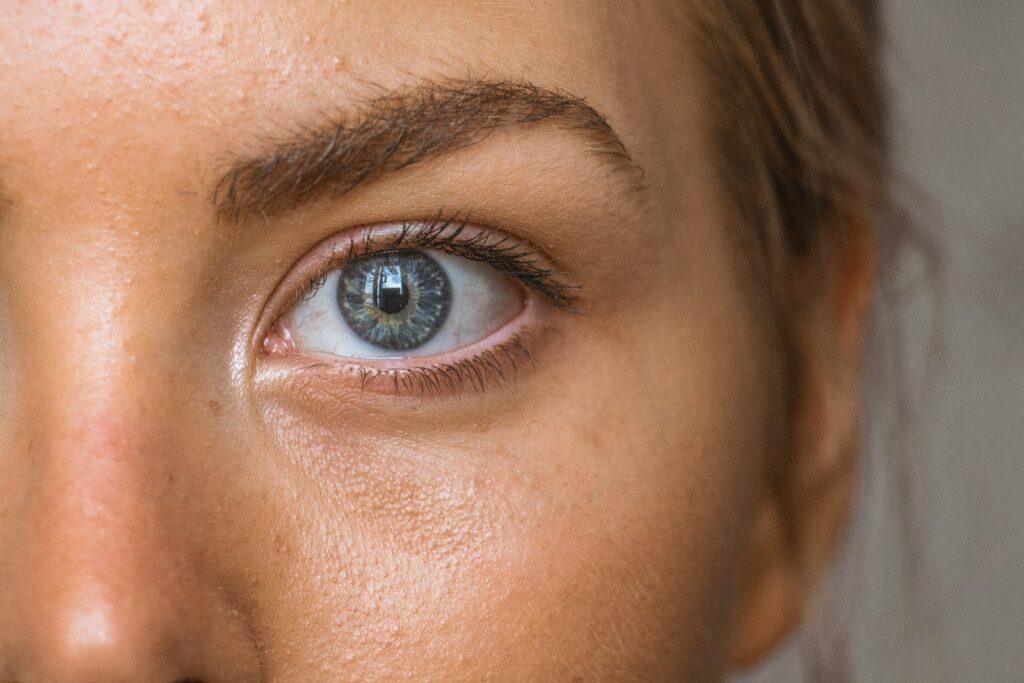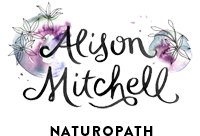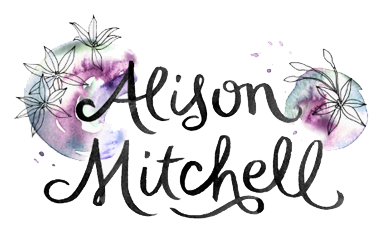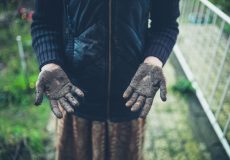A Naturopath’s Deep Dive Into Acne
Acne is such a common issue that people ask a naturopath to help with. It can really affect your self esteem, and in some instances can be painful and uncomfortable.
There’s no magic, quick fix for acne whether you see a naturopath or try the conventional medicine route, and sometimes you have to try a few different approaches before finding what works best for you. Typical timelines are often small improvements within two weeks, and more visible results around 3 months. When treating the underlying causes of acne naturopathically, this can sometimes take even longer, however the benefits of treating these underlying causes are often wide reaching.
As with most naturopathic approaches to health issues, it’s about finding out what the underlying cause of the issue is.
In the case of acne, it’s important to consider that skin is connected to other body systems – in particular the nervous system, the endocrine system (that’s hormones) and the digestive system. Imbalances in one or more of these systems will very commonly cause skin problems.
I’ll talk in more detail about these systems later, how to tell whether they’re the issue for you, and what you can do to help them.
Listen to the audio of this article here
It’s been a hot minute since my last episode of Guts and Girl Bits, I have been occupied with my busy home clinic and I have also been writing some e-courses, which I will talk a bit about later. Of course, I have also been spending time with family, would you believe my youngest Lara is now in Kindergarten? How time flies!
It was almost a year ago I started planning this podcast episode but I got rather distracted by everything else. However I’ve had some spare time to sit down and record, and I am hoping to stay on this momentum and release some more podcasts in the next few months. Please get in touch if you enjoy these podcasts, and if you have any questions or requests for future episodes I’d love to hear from you.

Sorting out your skin issues can be sooo frustrating when you’re doing it by yourself – do I need to go on medication? Does my diet make a difference? Are my hormones out of balance? Maybe this skin product will help? No, maybe this one, no, this one, no this one. Maybe I need a skin peel? Maybe I need laser? Maybe I need to go vegan? Maybe paleo? Do I need to detox? AUUUGH!
Rest assured you’re not alone, soo many women (and I do treat men occasionally to) come to me at their wits end with their acne.
Naturopathic approaches to any type of health condition always stem from one of the core naturopathic philosophies: treat the cause.
What the cause of acne is may vary from person to person, and that’s where a naturopaths consultation questions come in handy – delving into the different body systems like gut health, nervous system health and hormones, and sometimes using functional testing to get to the bottom of it. I’m going to try and give you some clues about it later so you can get a bit of an idea for yourself, and I will also discuss some of my favourite treatment options.
Emunctories
When it comes to root cause medicine, the way that the body is able to eliminate waste is an important consideration for any skin concern.
Naturopathic medicine is built around a set of philosophies, and one of these is the theory of emunctories.
The term emunctories is a bit of a funny word, but it refers to an organ or duct that removes or carries waste from the body.
Traditional naturopaths often consider the theory of emunctories when establishing a treatment plan, they may not use the term emunctories (I do, I think it’s a fun word to say, can you tell, I’m saying it a lot) but we always want the body to be eliminating waste efficiently, and to minimise the burden on our elimination systems. If our eliminatory system is unable to handle the load that is placed onto it, this will cause symptoms to express.
The emunctory system exists in tiers. These tiers will prioritise the primary emunctories, and if that system is overloaded it will progress downwards.
Primary emunctories are the main channels of elimination of the body that we want to be carrying the majority of our waste burden.
The primary emunctories are:
- Sweat
- Through the liver and intestines, passing bowel motions
- Through the kidneys and bladder, urination
- Through our breath
We can support our primary emunctories by drinking adequate water, eating lots of fibre and supporting our gut microbiome, breathing exercises, sweating through exercise or saunas.
The secondary emunctories include the skin and the mucous membranes of the urogenital tract, the respiratory tract, the digestive system. If our primary emunctories are overloaded or not working effectively, then toxins can be excreted through the secondary emunctories. This often shows itself as skin conditions, phlegm, diarrhoea (usually this may be a bit more mucousy).
What can commonly occur is that symptoms that express on this level are treated with suppressants, for example cortisone based creams, decongestants or cough suppressants.
If the secondary emunctories are suppressed or unable to cope, symptoms may start to appear in other areas such as in menstruation, emotions, swollen lymphatic glands, fevers and other irritations of mucous membranes.
So if we were to look at treating acne in keeping with this philosophy of emunctories it would look like this:
- Making sure you’re eliminating properly through your bowels, by working on your diet and using herbal medicines that support this
- Using herbs that are classed as ‘depuratives’ – these are herbs such as burdock and clivers, and they help to improve the elimination of the primary emunctories
- Drinking plenty of water to support kidney function
- Encouraging good lymphatic flow with lymphatic drainage techniques and exercise
- Making sure you’re getting your sweat on – exercise or saunas
The importance of the gut
So let’s talk a bit about the digestive system how does that affect acne. It’s no secret that the health of your gut will impact on almost every system of the body, so of course it affects skin. There’s a few ways in which it can do this.
Think back to what we talked about with the concept of emunctories and how important that is. An overburdened digestive system will overburden the emunctories, leading to skin congestion and inflammation. Your skin is like a looking glass to your gut health.
Gut health impacts on hormonal health. Oestrogen has to be metabolised through the liver and bowels, and if that’s not eliminating effectively than oestrogen doesn’t get fully eliminated, instead it gets recycled in a more active form, and too much oestrogen will have a proliferative effect on your acne.
Intestinal permeability, or leaky gut, can cause inflammation, often via histamine excess. Histamine and inflammation will often show up as redness and acne. Histamine will also be driven up by oestrogen, which is why acne may be worse at certain times in your cycle.
One of the subtypes of acne which is caused by a fungal overgrowth often goes hand in hand with an altered gut microbiome.
Gut issues are linked to other types of skin condition as well such as eczema psoriasis and rosacea.
Clues that your gut may a problem for your skin health:
- You experience gut symptoms like bloating, altered bowel motions, IBS, gas.
- You experience fungal infections such as thrush or tinea.
- Your acne flares up after eating certain foods
- Your acne is mostly around forehead, mouth and cheeks.
Improving gut health
The main things that we want to be focusing on when improving your gut function is
- making sure that you’re digesting food appropriately with good levels of digestive acids and enzymes
- ensuring that you have the right balance of gut bacteria, and that you are absorbing your nutrients effectively as well
- supporting the lining of the gut health with herbs and nutrients
- avoiding highly inflammatory foods and any foods that you might be intolerant to as these will aggravate inflammation worsening any type of skin condition.
The nervous system
Does stress cause health issues? I’ve heard this concept dismissed a lot, but I am a firm believer that yes, stress can cause physical symptoms, especially things to do with the skin.
When we’re going through high periods of stress we will experience impacts on our inflammation levels due to an increase in our cortisol and histamine levels, and our reproductive hormones can be affected which increases sebum and keratin production, and increased hormone sensitivity in your skin.
Stress will also impact on our gut health, which will contribute towards skin inflammation and increased chance of skin infections.
Signs your nervous system could be a player with your skin health:
- Feeling like you’re constantly on edge
- Oversensitivity to sensory stimulation e.g. noise
- Brain fog, difficulty thinking clearly
- Poor quality sleep
- You’ve been living off coffee and stimulants
- Feeling out of balance emotionally, anxious or depressed
- Fatigue
- Low libido
How to support your nervous system
- Make sure you’re doing fun things and laughing, as these are great ways to burn off your stress hormones
- Try to reduce sources of stress, if that’s at all possible – maybe that might be asking for help with something that is putting a burden on your shoulders.
- Make sure you’re eating enough – low calorie, and nutrient poor diets can be a source of stress to the body. Similarly for those who are in need of nervous system nourishment, focus more on weight training and low intensity exercise rather than high intensity exercise.
- Get plenty of sleep
- Practice screen boundaries
- Practice mindfulness exercises each day
- Get someone to talk to, perhaps a psychologist or a counsellor.
Stress can have such a big role on our health that I consider it to be one of the most important things to address. I have created an online group Naturopathic program that provides individualised care in a group setting, focusing on the pivotal factors for a healthy nervous system and adrenal gland health. If you are feeling like your nervous system needs some nourishment, I’d love for you to join me in my program Beat Burnout.
Hormone Balance
One of the most well known hormones that cause acne is testosterone. Testosterone and it’s family of hormones, androgens, cause acne by binding to receptors in the skin, increasing oil and keratin production, resulting in oilier skin with a potential for blocked pores. The bacteria (and sometimes fungi) which causes inflammation in our skin loves to feed on this, so extra fuel for the bacteria means the bugs grow, triggering an immune response in the area, resulting in more acne.
If you have a irregular periods, hirsutism (excess hair growth, such as chin hair) or have been diagnosed with PCOS there’s a good chance that high testosterone levels are a driver for your acne.
If your acne tends to get worse around the time that you are ovulating as well as when you are about to get your periods but then gets better when you start your period that’s a sign that the fluctuating levels of oestrogen are playing a role.
We need oestrogen, it can be our best friend but if we’re not metabolising or excreting it properly then it can elevate histamine, causing inflammation. Oestrogen needs to get metabolised and excreted through the gut to be in a good balance, otherwise it can be too proliferative.
Oestrogen and histamine work closely together when oestrogen is at its highest histamine will follow suit and if you have issues with high histamine that can also cause oestrogen to be high as well.
If you are not ovulating regularly or well, you may not have enough progesterone to counter oestrogen, and lack of progesterone doesn’t help skin health either.
Signs you may have hormonal acne
- Your acne worsens around ovulation or premenstrually
- Acne is located on the chin, jawline, back and chest
- Your period is irregular or painful
- You may also experience PMS symptoms
- You have oilier skin than normal
- You have thicker, coarser or more hair than normal for your genetics
How to assess your hormones
There are several ways to get an insight into your hormones
I am a big fan of using the DUTCH test, which is performed using urine sample to measure hormone metabolites. It can give you insight into not just the overall level of your hormones, but also the quality of metabolism of your hormones, whether they are being metabolised down the friendly or the angry pathways.
Blood tests don’t look at metabolites but they are very useful to get insight into your overall hormone balance. It’s vital to test on specific times in your cycle to be able to make use of these results.
Testing at day 2 or 3 of your cycle (the 2nd or 3rd day of your bleed) will give a baseline of low levels. Test FSH, LH and Oestradiol at this time.
After you ovulate, your hormones will start to raise, and usually peaks 7 days after ovulation, so at this time you want to do another test, measuring progesterone and oestradiol.
At either of these tests you will want to also measure testosterone profile (SHBG, androstenedione, testosterone, DHEA, free testosterone), prolactin, thyroid profile and fasting insulin.
If you are on the OCP, the female reproductive tests will not be reliable by thyroid function and insulin can be measured.
Does your diet make a difference to acne?
Yes, it does.
Your diet can affect your skin in different ways but one of the big drivers of acne we know is inflammation and then another big driver for acne as well is your hormone balance.
It makes sense that if we’re eating foods that are inflammatory then that’s going to make your gut health and acne worse. Inflammatory foods may be foods that you are intolerant to, or it may be foods which are generally considered to be inflammatory.
Some of the big ones for that is wheat and dairy. I often recommend cutting out dairy as a first step when you try to address acne because it reduces inflammation and so you could swap that for almond milk or oat milk or rice milk whatever your preference is. Lactose free milk isn’t really going to make that much of a difference because a lot of the inflammation comes from the protein. Some people find that A2 milk can be helpful for them but initially I recommend cutting it out altogether to get an insight.
After inflammatory foods, bad guy #2 is sugar. Sugar, in particular refined sugar and highly processed foods are an issue because it can increase the production of a substance called insulin like growth factor 1 (IGF-1). This acts to increase the hormones known as androgens in our body such as testosterone and what these can do is make our skin produce more oil and keratin. Rewind back to the section on hormones if you need a refresher on this.
Insulin is an important hormone but when we’re eating a high GI diet it’s often going to be making acne worse so aiming for a low GI diet is going to make a big difference there. Imbalances in blood sugar levels can also trigger cortisol and histamine imbalance so you really want to be keeping your blood sugar levels nice and stable.
If you have a blood test that shows up high levels of insulin then this can actually be a marker that you do have a bit of insulin resistance which is a sign that you really need to get your blood sugar levels back under control. Insulin resistance is a leading cause of high testosterone and PCOS.
Now don’t get me wrong sugar is not all bad I am a big fan of fruit and potato but what we want to avoid is foods that have a lot of sugar and have a lot of refined carbohydrates and not much else and so that might look like ice creams, jams, juices, packaged foods, excessive amounts of white breads and pasta, sauces with added sugar, soft drinks, lollies, cakes and other sweets.
The other important dietary consideration is your fibre and water intake. Because one of the goals when supporting skin health is improving elimination through the gut and supporting our emunctories, you want to ensure that you’re getting plenty of water and fibre.
Fungal acne
Let’s talk about fungal acne.
For some people, the cause of their acne is actually fungul.
Some people experience a little bit of a different type of acne that can be more stubborn and doesn’t respond to the typical types of treatments. One of the reasons that this is so stubborn is that because a lot of skin products that are recommended for conventional acne will feed this fungus.
Fungal acne is also known by the term pityrosporum folliculitis – an infection with a type of yeast called Malassezia which lives in the hair follicles and eats our natural oils and any oil that you happen to apply onto it. This type of acne tends to express itself more on your forehead, and may also show up on your back, chest, shoulders and along the hairline and in the T zone.
When tackling this type of acne the treatment goals are to support your immune system, gut microbiome and balance hormonal health.
If you suspect that you have fungal acne, you may like to try an anti-fungal shampoo or cream which, if beneficial will provide insight into your acne cause.
Q&A Transcript
I did a shout out for some questions when planning this podcast:
One of the submitted questions was how to prevent acne coming off the pill and this is such a fantastic question because it’s a really common thing that people consult with me about. If you had acne before you went on the pill there’s a pretty good chance that you’re going to experience some acne when you come off the pill again. Unfortunately taking the oral contraceptive pill doesn’t always fix any underlying issues that might have caused the acne to be there in the first place but what it does a fantastic job of is reducing the oil production in the skin which means that you’re going to have very little acne if any. When you come off the pill this oil production is going to increase and it gets a little bit confused because you haven’t really been making any oil for however long so it’s like hang on how do I do this how much oil do I have to make again and so it goes a bit crazy and usually it’s going to be crazy for around six months or so then it starts to settle down but there are things that we can do to help reduce the intensiveness intensity of the crazy.
So what can you do if you’re about to come off the pill? I recommend starting with cutting down inflammatory foods and for most people I recommend supplementing with zinc. I typically don’t prescribe hormonal regulating herbs for three months after coming off the pill because I want the body to try and set up that communication through that HPO axis itself but what I do like to do is encourage emunctory support with herbs, support liver function to improve the clearance of the contraceptive and to make sure your lymphatic system and your immune system is happy.
Question 2 – How long does it take to fix acne?
How long remedies may take to fix acne will depend on what the underlying cause is.
In my experience the redness and inflammation will settle down within a few weeks, and then the frequency and severity of breakouts reduces, and healing time improves.
It’s different with everyone, and as much as I wish everyone had great results there are some people who take a bit longer to see changes, and some people who get occasional relapses.
On the whole I find 6-12 months a typical length of time until someone is able to ease off the herbs and supplements, they’re feeling good about their skin at this point. If there’s a lot of scarring this then needs to get sorted with a beautician, especially one who does laser treatments for scarring.
Question 3 – Are probiotics helpful for acne?
Yes, I usually do have a focus on gut health when treating acne, especially if it’s on the cheeks. But probiotics can be helpful.
A general reminder with probiotics is that you want to be strain specific. The code at the end of the probiotic name tells you which species it is, and therefore you understand which role it plays.
Some of the strains I look at using are Lactobacillus salivaris ls-03, lactobacillus rhamonsus LL, lactobacillus casei lc03, and some Bifidobacterium such as the breve br03, or the animalis ssp.
Question 4 – My teenager has acne, I don’t want her to go on harsh medications, is there anything that can be done?
Yes of course! Treating teen acne is not too dissimilar to treating adult acne. We want to be balancing blood sugar levels to reduce it’s impact on hormones, and reducing inflammation by cutting down on inflammatory foods such as dairy, and potentially high histamine foods. Supplements can be handy, for instance zinc, vitamin B5, inositol and or berberine rich herbs.
A summary of my favourite treatments for acne:
- A probiotic specific for acne health
- Balancing mineral health – typically this may be zinc, but in some cases copper may be needed. You can use a HTMA to assess mineral levels
- Support gut function with gut healing nutrients and diet
- Lower inflammation by eating a low dairy, or low histamine diet
- If hormones are out of balance you can address this. Here is where it gets a bit more individual. Ensuring good ovulation is an important first step. Some common nutrients I provide for this is inositol which supports blood sugar level balance and ovulation. Zinc has an anti-androgen effect and can be helpful.
- Balancing omega- fatty acids through diet, and potentially supplements.
- Herbal medicine to support emunctories, stress levels and hormone balance, as well as reduce infection and support immune health. Some common herbs I opt for are Coptis, which is rich in berberine, Chaste tree, if indicated for ovulation, Withania for stress support, burdock as an emunctory support.
Thank you for listening, if you have enjoyed this episode please leave a review, subscribe if you haven’t already and as always feel free to get in touch.











